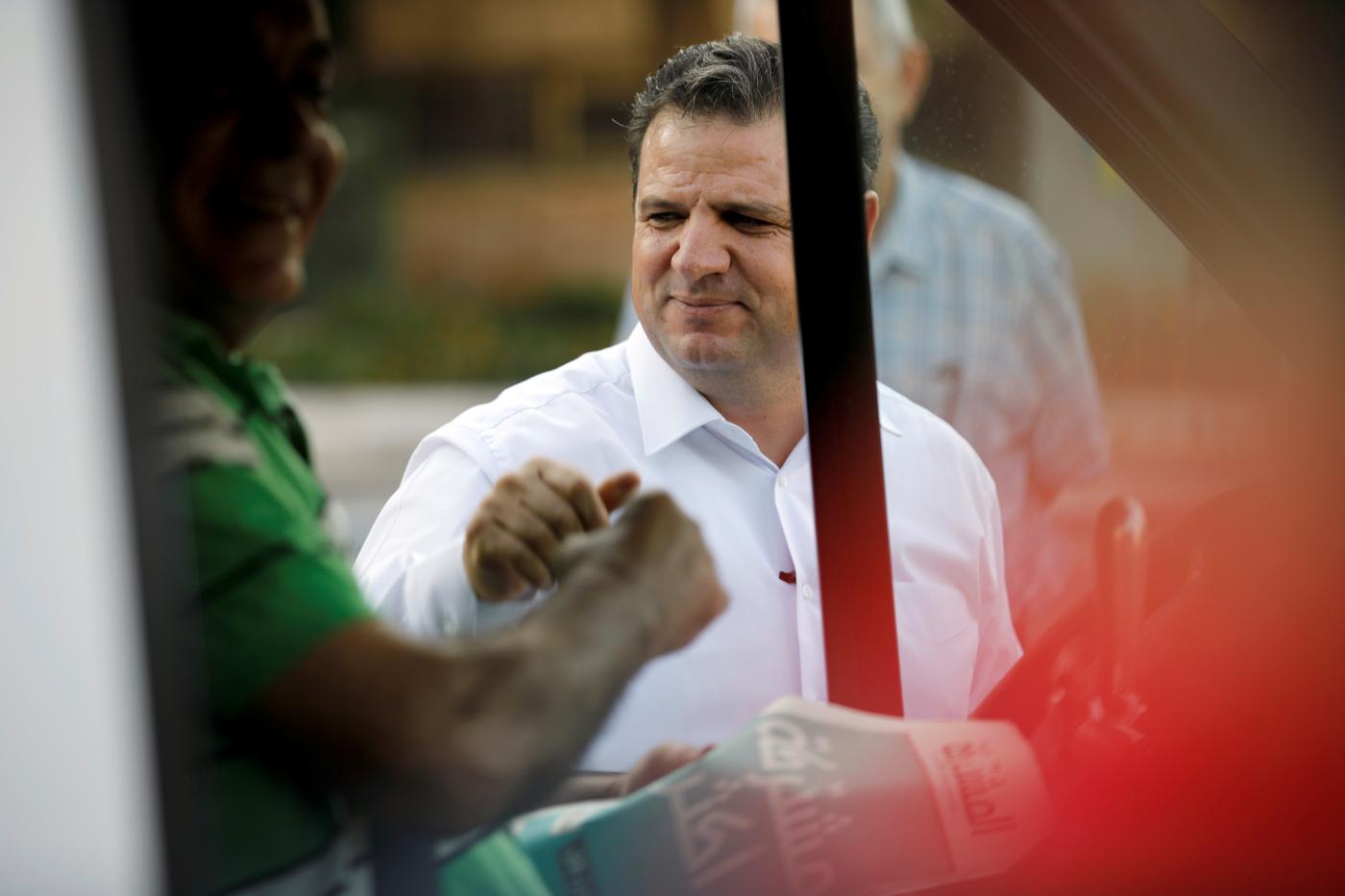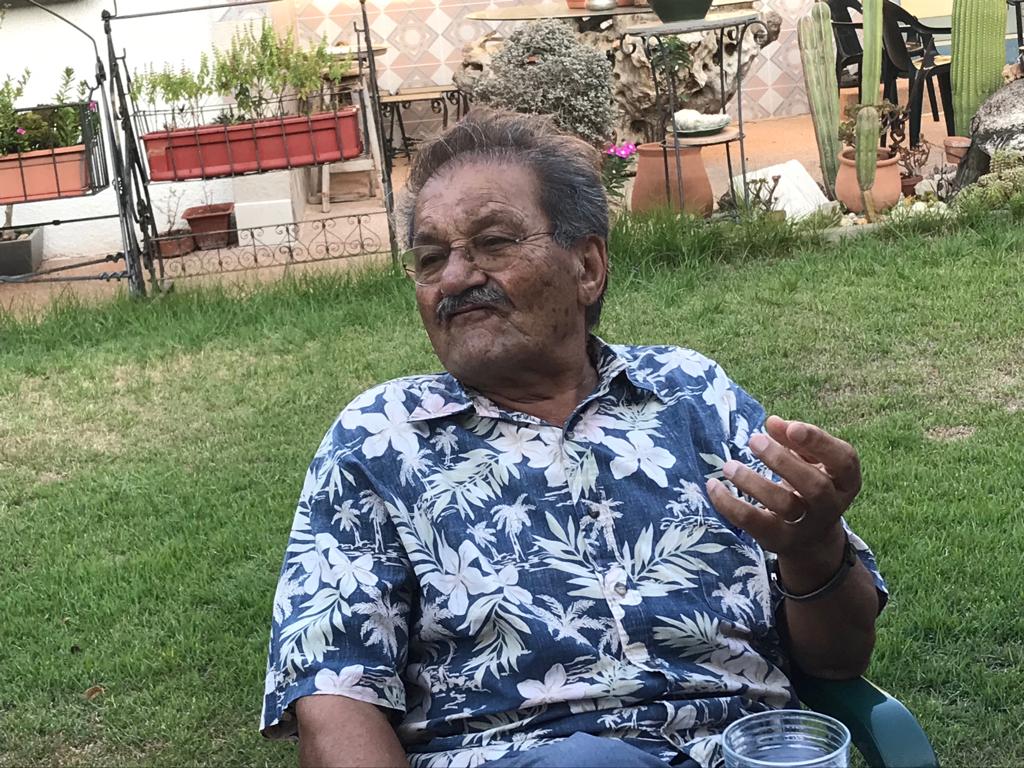Racism and regret: Palestinians in the Galilee mull voting in Israel

The nation state law turned many against voting in Israel's elections, but Netanyahu's racially charged campaign has provoked others
The streets of Arraba on Monday are no different than any other day. And that’s what is strange.
In April, on the eve of the last, inconclusive parliamentary election, there was a buzz about this Palestinian town in northern Israel’s Galilee.
Campaigners for the Palestinian parties were urgently canvassing passers-by, thrusting leaflets into their hands. Five months later, they are noticeably absent.
There was also the question of boycott. Ahead of the last polls, the Palestinian community in Israel was locked into a ferocious debate about whether to participate in the elections at all. Now, the talk is muted.
That has left commentators scratching their heads as they attempt to predict how many Palestinian citizens of Israel will cast their vote on Tuesday.
“I have not decided if I will vote or not,” said Sami Ghaniam, who owns a cafe on the road out towards the neighbouring town of Sakhnin. “Because I have no hope that the situation will change.”
Palestinians in Israel make up around a fifth of the population but have, since the state’s violent creation in 1948, complained of discrimination and a lack of investment in their communities.
“We desperately need a better education system, there are sick people lying in hospital corridors and the public transportation here is dreadful,” Ghaniam said.
“Israel’s main enemy isn’t Hezbollah or Iran, it’s the rush hour. Millions are lost from the economy because of traffic.”
Centre of resistance
Traditionally, Arraba has been an epicentre of Palestinian political life and resistance.
In 1976, it saw the first Land Day demonstration, when Palestinian citizens of Israel protested en masse against Israel’s appropriation of land for military use and Jewish settlement.
Four protesters were killed by Israeli forces in the Galilee, three of them women, and Land Day demonstrations have been held annually since.
The town is also a communist stronghold. The hammer and sickle can be found spray-painted in its alleyways from time to time.
Down the end of one such alleyway sits Hatim Kanaaneh, 82, a retired doctor and one of Arraba’s most prominent intellectuals. He says he’s voting, and urges other Palestinians to do so too.
“We are evidence there is a problem in Israel," he tells MEE in his garden.
By being in the parliament, Kanaaneh argues, Palestinians can have a voice, even if they are not an effective legislative force.
Israel’s parliament, the Knesset, can be a platform from which Palestinians can force the international community into pressuring Israel to address the community’s concerns, he says.
“Israel’s claim to democracy is what empowers us, to some extent,” he says.
The doctor notes that Israel is able to ignore Palestinian refugees in neighbouring countries and suppress Palestinians in the occupied West Bank and Gaza with its military might.
“The only community it doesn’t know how to deal with are the Palestinians in Israel,” he says. “I think we have to use the power not available to others.”
Kanaaneh predicts the Joint List, the slate on which the four main Palestinian parties are running together, will take 15 seats this time – five more than the parties won in April.
That’s certainly on the optimistic side, with polls predicting that it will take between 10 and 11 of the Knesset’s 120 seats.

Hatim Kanaaneh sits in his garden in north Israel's Arraba (MEE)
What the Palestinian MPs do once in parliament, however, is also contentious.
Israeli Zionist parties like Benny Gantz’s Blue and White have made a point of refusing any suggestion they could sit with the Joint List, even if it meant toppling Prime Minister Benjamin Netanyahu.
The Joint List’s leaders have said becoming partners in government would be near impossible to imagine, too.
Kanaaneh says it could be a disaster for the Palestinian parties if they do.
“It would be a mixed blessing if any Zionist party tries to negotiate with our boys and girls,” he says.
“The Palestinian and Zionist causes are so oppositional that compromising with them would undercut our political essence. I would then think again before voting next time.”
Stoking fears, again
So far, the campaign has been borne along on racist undercurrents.
Facebook temporarily suspended the Netanyahu campaign’s automatic messenger service last week, saying it had violated its policy on hate speech.
A message had been sent out to thousands of people reading “Arabs want to annihilate us all - women, children and men" – which the campaign attributed to a misguided “junior staffer”.
Stoking fear of an upsurge in Arab voting helped Netanyahu swing the election in 2015, and it appears he’s trying it again.
Israeli newspaper Haaretz claims it has obtained a pre-recorded audio set to be sent out to phones on Tuesday warning of high turnout in Palestinian neighbourhoods. Netanyahu’s Likud party denies the report.
Ahead of the election, Netanyahu tried to pass a law allowing cameras to be placed in polling booths to combat what he alleged was “widespread voter fraud” in Palestinian communities.
To many, the legislation just looked like voter suppression, and the law failed to pass.
Diana Khalilah, a 21-year-old nursing student, says the rise in racist rhetoric is only encouraging Palestinians to vote.
“The atmosphere is a lot quieter than last time, people are a lot less involved and not really talking about the election,” she tells MEE.
“But the election has become a battle against Netanyahu. All my family are voting.”
Bittersweet reunion
Many in Arraba say the Joint List’s politicians have not made it easy to vote for them.
Last time, the four main Arab parties sat together in the Knesset, they failed to stop the highly controversial “nation state law”, which enshrined Jewish supremacy in a two-tiered legal system.
That contributed to the slate’s collapse into two separate lists in April, with the Raam-Balad ticket only just passing the 3.25 percent voter threshold to enter parliament.
“That was a massive disappointment,” says Ghaniam, the cafe owner, adding that it exposed the Arab politicians’ ineffectiveness.
Now the Joint List is back, but ugly public arguments over which candidates should be given primacy has soured the reunion.
“I have never voted and I probably will not this time,” says Mohammed Khatib. “The nation state law proved how ineffective the Joint List is.”
Instead, the 21-year-old says, he’s tempted to vote for Gantz’s Blue and White, despite its previous boast that the former general bombed Gaza back into the stone age.
Though that may be surprising to some, the prevalence of billboards showing Gantz’s face alongside Arabic reading “I commit to working on your behalf” shows Blue and White believes it can pick up disillusioned Palestinians like Khatib.
“The Arab parties don’t provide for the needs of the people,” he says. “I think Gantz would be better for the Arabs.”
This article is available in French on Middle East Eye French edition.
Source: Daniel Hilton, Lubna Masarwa, Middle East Eye

WRITE YOUR COMMENT